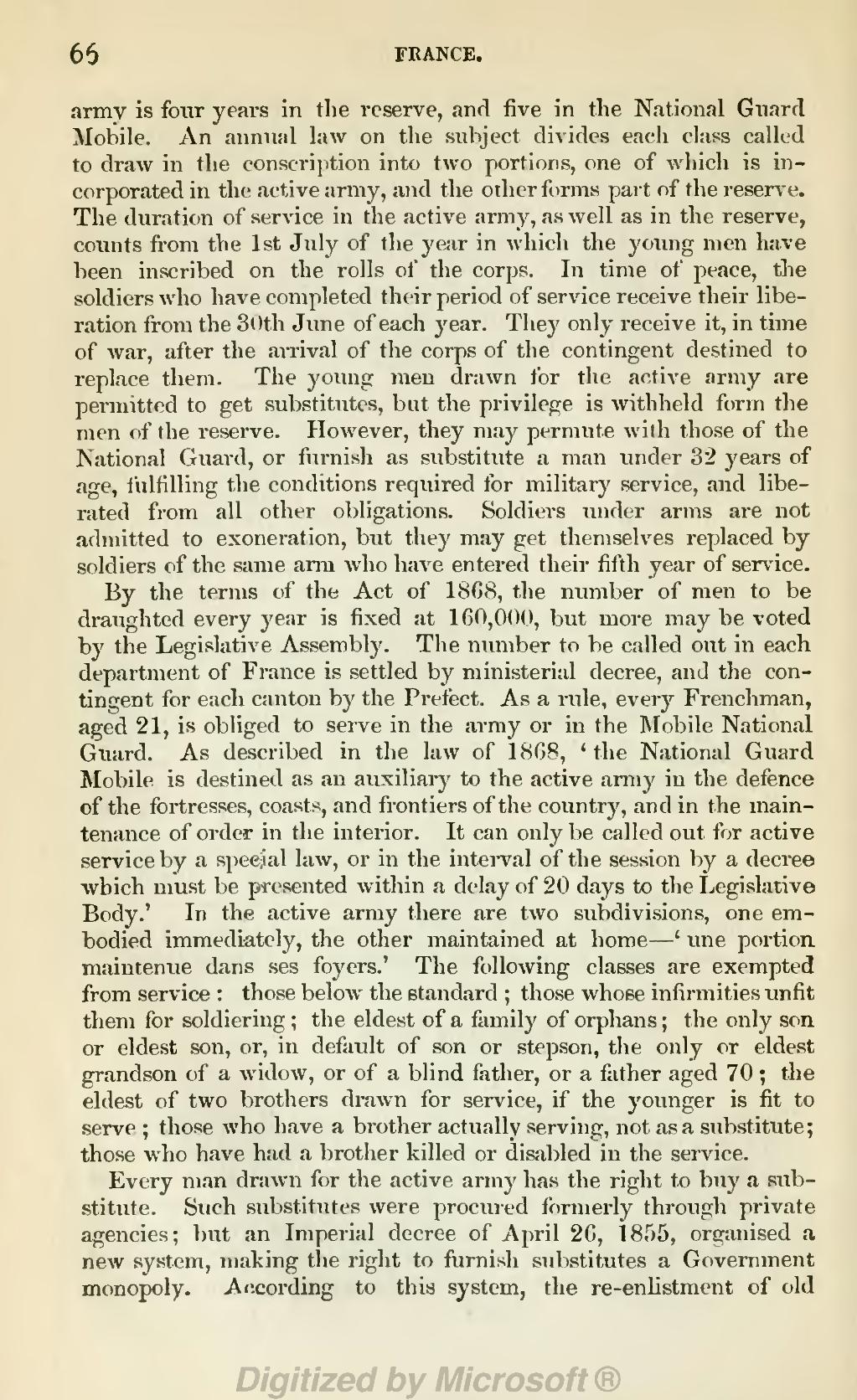army is four years in the reserve, and five in the National Guard Mobile. An annual law on the subject divides each class called to draw in the conscription into two portions, one of which is incorporated in the active army, and the other forms part of the reserve. The duration of service in the active army, as well as in the reserve, counts from the 1st July of the year in which the young men have been inscribed on the rolls of the corps. In time of peace, the soldiers who have completed their period of service receive their liberation from the 30th June of each year. They only receive it, in time of war, after the arrival of the corps of the contingent destined to replace them. The young men drawn for the active army are permitted to get substitutes, but the privilege is withheld form the men of the reserve. However, they may permute with those of the National Guard, or furnish as substitute a man under 32 years of age, fulfilling the conditions required for military service, and liberated from all other obligations. Soldiers under arms are not admitted to exoneration, but they may get themselves replaced by soldiers of the same arm who have entered their fifth year of service.
By the terms of the Act of 1868, the number of men to be draughted every year is fixed at 160,000, but more may be voted by the Legislative Assembly. The number to be called out in each department of France is settled by ministerial decree, and the contingent for each canton by the Prefect. As a rule, every Frenchman, aged 21, is obliged to serve in the army or in the Mobile National Guard. As described in the law of 1868, 'the National Guard Mobile is destined as an auxiliary to the active army in the defence of the fortresses, coasts, and frontiers of the country, and in the maintenance of order in the interior. It can only be called out for active service by a special law, or in the interval of the session by a decree which must be presented within a delay of 20 days to the Legislative Body.' In the active army there are two subdivisions, one embodied immediately, the other maintained at home—'une portion maintenue dans ses foyers.' The following classes are exempted from service: those below the standard; those whose infirmities unfit them for soldiering; the eldest of a family of orphans; the only son or eldest son, or, in default of son or stepson, the only or eldest grandson of a widow, or of a blind father, or a father aged 70; the eldest of two brothers drawn for service, if the younger is fit to serve; those who have a brother actually serving, not as a substitute; those who have had a brother killed or disabled in the service.
Every man drawn for the active army has the right to buy a substitute. Such substitutes were procured formerly through private agencies; but an Imperial decree of April 26, 1855, organised a new system, making the right to furnish substitutes a Government monopoly. According to this system, the re-enlistment of old

